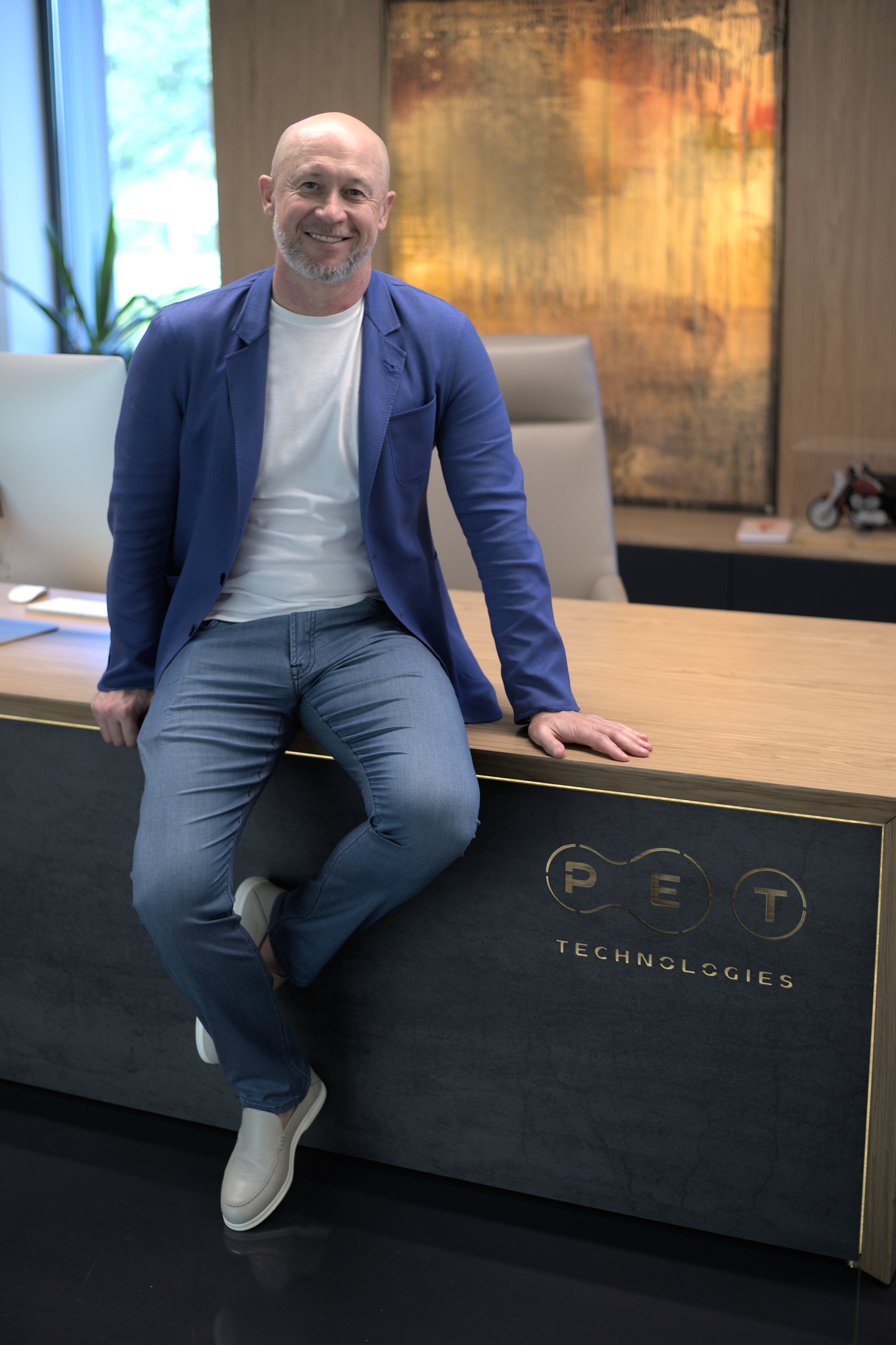WHAT PRACTICAL BENEFITS DOES A BUSINESS GET FROM THE DEVELOPMENT OF ITS OWNER`S PERSONAL BRAND

I wasn't on social media until the age of 48. At that time, I was deeply immersed in the operational management of my engineering company Pet Technologies, and sincerely believed that social media was a pointless waste of time.
Now, I am 53 years old, and nearly 55,000 people follow my Instagram page, while some videos on TikTok garner over a million views. Probably not a day goes by without me posting new content on social media, and not a month passes without me speaking in front of an audience of entrepreneurs offline.
What happened in these five years?
I stepped away from day-to-day operations, and to keep up my drive and motivation, I got involved in creativity and developing my personal brand. At first, as an old-school entrepreneur and manufacturer, I saw this as a temporary distraction, but after a year or two, I fully realized the benefits it brought both to me and my business. Now, I treat the development of my personal brand as a full-fledged project.
Currently, a personal brand is my primary occupation. I spend between two and six hours on it every day. What does it consist of? A personal brand involves speaking engagements and preparation for them, working with a team, photoshoots, writing books and columns. Additionally, a lot of time is spent staying up to date with trends on social media.
How to evaluate its effectiveness? Likes, followers and views are all important to me. But no less important is the practical benefit. What does it consist of? Let me explain.
Public activity makes you interesting to those who are interesting to you.
Why do we pursue business? Primarily, of course, to achieve financial well-being and the lifestyle we desire. However, money is only one side of the coin. Equally important is the circle of people we strive to surround ourselves with, whether consciously or unconsciously, and where we find ourselves after reaching a certain level of success. In the end, money becomes just the "basic package" — a ticket into the desired social circle. The main motivation for progress and development is being accepted, recognized by these people, and the quality of the interactions with them.
The environment, in my opinion, reflects the level and dynamics of human development. If someone remains stuck in the same circle for a long time, it means there's no progress, and they are not interesting to a higher-level environment.
What is a higher-level environment? Primarily, it’s about different horizons, the quality of ideas, goals, and a new scale of thinking. Through the transformation of my environment in recent years, I have gained a new perspective on my business and discovered many new development opportunities within the company that were previously not obvious to me.
Your environment reflects what you project into the world. If you don't project anything new, naturally, you stay in the same place. Developing a personal brand involves very deep and complex self-work. It’s a continuous process of self-improvement—both externally and internally. No matter how successful my factory is, being stuck in day-to-day operations, walking through the workshops, and going over numbers in meetings would never have expanded my mental boundaries the way creativity and public engagement have.
To get to know and accept a new person, the environment needs some time. Having active social media and a well-developed personal brand speeds up this process, as just a few minutes of browsing social media is enough to understand how interesting this person is and how closely their values and worldview align with yours.
The quality of internal communication with the team improves.
Before stepping into the public eye, I had a fear of speaking in front of an audience, including the employees at the factory. However, for a manager and leader, it’s very important to communicate with the team and inspire people not only with words but also with one’s energy. Especially during a crisis or turbulent times. The easier and more successfully they can convey information, the more effective their management will be. I understood all this, yet every speech was a struggle for me, requiring extensive preparation with breathing exercises and squats.
Constant public activity over the past five years, the practice of recording daily videos for social media, and performances from the stage have made a significant impact. Not a trace of fear remained. Now, I communicate with the employees of my company easily, naturally, and sincerely, and I've been told that I know how to inspire. To look good on stage or on camera, I have worked hard on my voice, diction, pauses, and other components of public speaking. This now helps me inspire and support my people, convey my thoughts more effectively and persuasively, and unite them around business goals.
The effectiveness of external communication is increasing
The same principle applies to external communication—with suppliers, customers, partners, and creditors. The experience and skills developed on social media help to be more relaxed and persuasive during negotiations. As your personal brand grows, so does the brand of your company; you pull it along with you. Thanks to my public activity, a company that was previously little known to the public has started to gain more recognition, including among potential buyers and creditors. I often repeat: there is always a physical person behind every legal entity. This is especially relevant in our realities. The values, beliefs, and reputation of the owner are directly reflected in the company. In people's minds, the owner and their company are inseparable; they are a single entity.
I spend several million hryvnias a year on developing my personal brand. I can say that the investments in my personal brand have already paid off, especially when considering the value of contracts for the purchase of our equipment, where the strength of my brand played a key role in the decision-making process.
I also noticed that almost all serious institutions, such as banks, study my social media pages in parallel with their research on the company. There have been a few interesting situations during negotiations at the bank. I arrive, start explaining something, and they respond, "Oleksandr, we know about you; we follow you." Personally, this makes communication much easier for me.
Attracting new foreign contracts.
My experience in building a personal brand has highlighted an important thing for me: the key is to showcase simple, real life, without filters or advertising. There's no need to create an illusion of success; it's important to show ordinary moments: here you wake up, take a walk, record something. A simple life builds trust because people see not only the celebrations but also the everyday reality.
I applied this approach to the company: I encouraged our communication team to showcase the everyday life of the company. Here, the guys are working on something in the workshop, here they have a smoke break, and here we ship the finished product. We started publishing such materials on social media, including LinkedIn and Facebook. Three months later, we gained a client from Peru. He was surprised: "So you are really working? You are in the middle of a war!" He bought a car from us, and it was sold as it is, without embellishments. It turns out to be more important now than beauty and aesthetics.
I wouldn't have understood this deeper essence if I hadn't started developing my personal brand. Previously, everything revolved around standard templates: a beautiful video, reports on achievements, and superficial success. And now we simply show our daily life. The straightforward existence of the factory fosters trust.
A personal brand allows you to better understand yourself and your goals
A personal brand is not just about creating a public image, but also about deeply exploring yourself. When you start developing your brand, you reveal different sides of your nature and show them to the world. However, what you perceive as important or interesting about yourself does not always attract others. Often, the opposite is true: you might consider your depth and intelligence as your unique selling points, while people may be more drawn to your openness or lightheartedness.
Developing a personal brand helps you focus on yourself and better understand who you truly are. This can be compared to spiritual growth. A personal brand is a continuous process of self-improvement that requires effort and self-reflection. I can confidently say that I've never worked on myself as much as during these five years. As a joke, I often say: I’ve never worked as much as I do now, even when I didwork.
